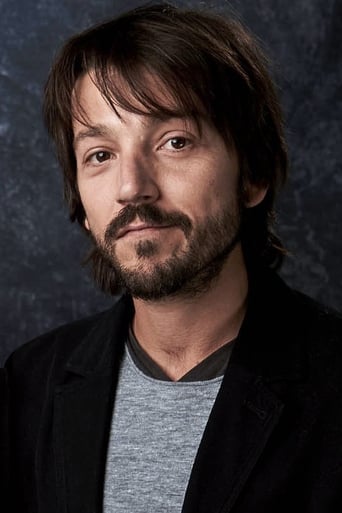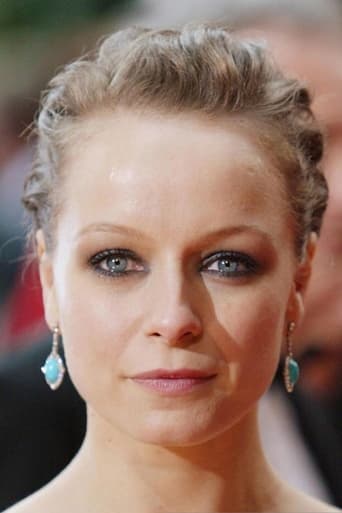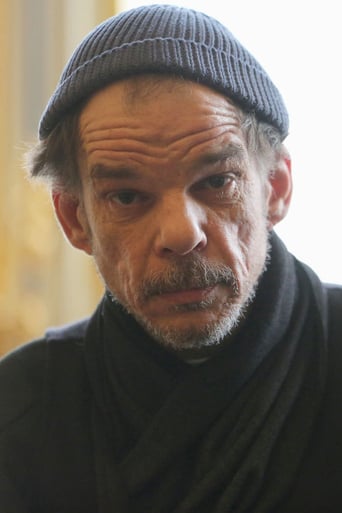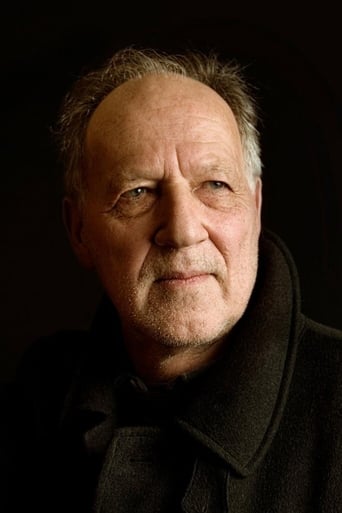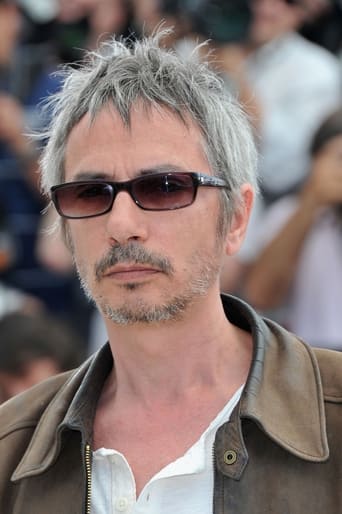Steve Pulaski
Harmony Korine's Mister Lonely is a worthwhile picture in many ways, but it's also a frustrating one, which is something that could be said by critics of his work as well. I consider myself a pretty sizable fan of his material, loving his daring debut Gummo and his terrific sophomore effort with Julien Donkey-Boy, which took on a Dogme 95 personality. This film is, as expected, something different. It's a film with a more visible message, but one that tests patience, which is a talent Korine can employ very often in his work. As maddening as Mister Lonely is, it's also worth a look and some much-needed examination.The story of how Korine struggled to make this film is a bit more interesting than the film itself. The gap between the release of Julien Donkey-Boy and this film was eight years, due to Korine's drug addiction and loss of interest and enthusiasm for cinema as a whole. He was also unable to get respectable funding for the picture, further delaying the project, and when the money was finally obtained (a heavy $8 million for Korine's standards), it wasn't even remotely covered, grossing roughly $300,000 upon release. It's a devastating feature when your film, which took years to make and finance, only goes on to gross middling numbers. This is a picture that, despite its notable issues, at least deserves to be seen by a broader audience. Surely broader than a handful of independent theaters that were gracious enough to run the film.The film, as you can expect if you've been familiar with Korine prior to this, is bare-bones and the direction lies within the tribulations and details of the characters. Diego Luna plays a Michael Jackson impersonator in present-day Paris. He is a direct clone of Michael when he throws on tight outfits, dark shades, a black hat, and a splash of makeup, and tries to adhere to his fascination with inhabiting the characteristics of the larger-than-life pop singer by earning wages off of his talent working as a street-dancer.He eventually encounters a Marilyn Monroe impersonator (Samantha Morton) at a coffee shop, who chats him up and is "starstruck" to find another celebrity impersonator. She takes him to a remote Scottish island, which seems to only be inhabited by a large, spacious commune that is home to a number of other impersonators. Marilyn is married to Charlie Chaplin (Denis Lavant) and her daughter is Shirley Temple (Esme Creed-Miles). The other icons include the Pope, the Queen, Madonna, James Dean, Sammy Davis, Jr., a vulgar Abe Lincoln, and Buckwheat. Together, they make up an enormous family of acclaimed, recognizable icons and wouldn't have it any other way. Their divine goal, in the end, is to put on something of a variety show, anticipating the entire world will come watch them perform.A minor subplot involves Werner Herzog (perhaps one of Korine's biggest fans) and his character, a lanky, soft-spoken preacher, and a group of nuns who fly over the Scottish island in a helicopter and toss food to the people below. One nuns falls out of the helicopter and lands on the grass below, miraculously, without a single scratch. She is quick to thank God, who she believes prevented her from being injured and later encourages her other sisters to jump out of the helicopter. Her argument is supposed to be that if you don't jump, you lack the faith that God will rescue you.Both of these plots don't gel very well together, but they share the same meaning of both groups of people in desperate search of a direction in life and looking towards a way of momentary satisfaction that will somehow turn into a lifetime's worth. As time goes on, we see Michael Jackson become very detached from this society, almost fearful of it, and beginning to dread its shortcomings and behavior more-so than the kind he's long neglected out in "the real world." The encompassing theme of Mister Lonely is what kind of thinking and rationale can prevail when one feels hopeless and inadequate thanks to whatever societal barricade has been set. The impersonators feel insecure about their personalities and are unaware of their true colors; confused on how to show them, whatever they may be, to a judgmental, unforgiving society. The nuns see God as the reason for their good fortune, unable to think or believe they, themselves, have gotten them anywhere.The ideas and limitless morals of Mister Lonely make this film beyond interesting and deep. However, it's writer/director Korine (and his brother, Avi) who make it deteriorate in quality overtime. For one, the pacing is achingly slow and the entire film goes on for an overwrought one-hundred and twelve minutes. This is far too long for a story of this magnitude, especially when the end functions predominately on disjointed scenes and sequences where the meaning is kind of a muddle. If the film needed anything, it's less impersonators and more editing and structure.The film works competently as something of a parable or a soothing meditation on life; a character study on characters of characters, if you will. Put to Korine's trademark vision, involving many calm sessions and many quirky ones, and cinematography of the Scottish island that is downright gorgeous. Think a less formal Wes Anderson for the true landscape and feel of this film. As usual, Korine never allows his aesthetics to flounder of disappoint.My three stars to Mister Lonely is a generous three stars. I recognize its immediate problems, but, too, see them through for its message, tone, aesthetics, and strong message that is almost impossible to ignore. This is a beautiful film; one I wish would have more of a strict duration on its premise and not carry on for twenty more minutes when it was an appropriate time to end the excursion.
Ed Uyeshima
There is a certain idiosyncratic appeal to this small 2008 piece of strange whimsy thanks to Harmony Korine's ("Gummo") wholly individualistic film-making style. Co-written with his brother Avi, he has created an admittedly weird if visually arresting film that opens with a slow-motion shot of a man in a Michael Jackson outfit, complete with white mask, riding a bicycle with a stuffed monkey attached by a wire flying in the tailwind. This is all accompanied by Bobby Vinton's 1964 falsetto-tinged pop hit, which shares the film's title. However, the movie itself is hamstrung by a disjointed narrative, thinly developed characters, and lethargic pacing that makes the film seem much longer than its 112-minute running time. That's too bad because Korine explores the fallacies of identity with a surprising dexterity. It's just that he can't consistently maintain the uniqueness of his story concept beyond the original set-up.The protagonist is indeed a Michael Jackson impersonator who performs for change on the streets of Paris. Actually a reticent Mexican expatriate who paints faces on eggs to pass the time in his room, he gets excited when asked to entertain at a rest home. There he meets a kindred spirit in a curvaceous Marilyn Monroe impersonator, who promptly invites him to a castle and farm commune in the Scottish Highlands inhabited by a motley crew of fellow celebrity impersonators. We meet Marilyn's husband, a Charlie Chaplin impersonator, and their moppet daughter, who pretends to be Shirley Temple. Surprisingly, just when you expect Korine to take us on a flight of random fancy, the story takes a more predictable turn into a love triangle of sorts and moves slowly toward a downbeat resolution. In a completely separate storyline, a group of nuns in a Latin American village are given a sense of eternal purpose when one accidentally falls out of a plane and miraculously survives. Korine doesn't bother to show us how one storyline relates to the other, nor does he explain why the diverse array of impersonators would congregate in such an isolated spot. Priority is placed on presenting these strange tableaux rather than building narrative coherence.The resulting emotional disconnect from the characters makes the cast work that much harder to maintain our interest. At minimum, the principals give sympathetic portrayals despite the challenges. Diego Luna (Tenoch in "Y Tu Mama Tambien") does a dynamite impression of Jackson's 80's-era dance moves and even more, captures the innate diffidence of the eccentric superstar's offstage behavior. But it's the chameleonic Samantha Morton ("In America"), sporting a convincing American accent, who brings heart and vulnerability to her breathy faux-Marilyn. In the other story, renowned German director Werner Herzog ("Fitzcarraldo") seems to be improvising as he plays the priest who wrangles the nuns into their higher calling. Except for Denis Lavant's desultory turn as Chaplin, the rest of the cast fails to make much of an impression beyond their various guises. I just wish the audacity of Korine's venture could have been matched by a gift for storytelling.


